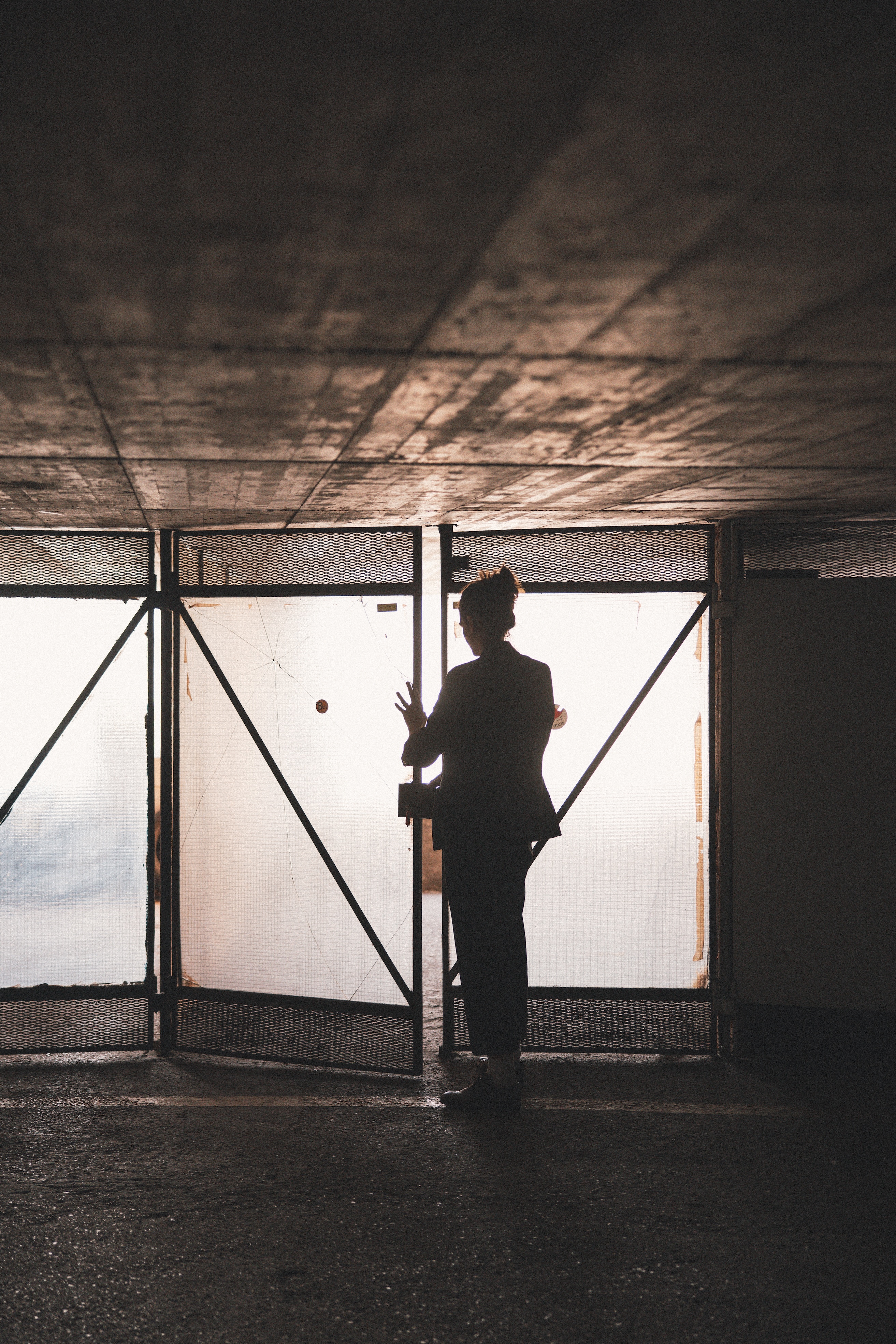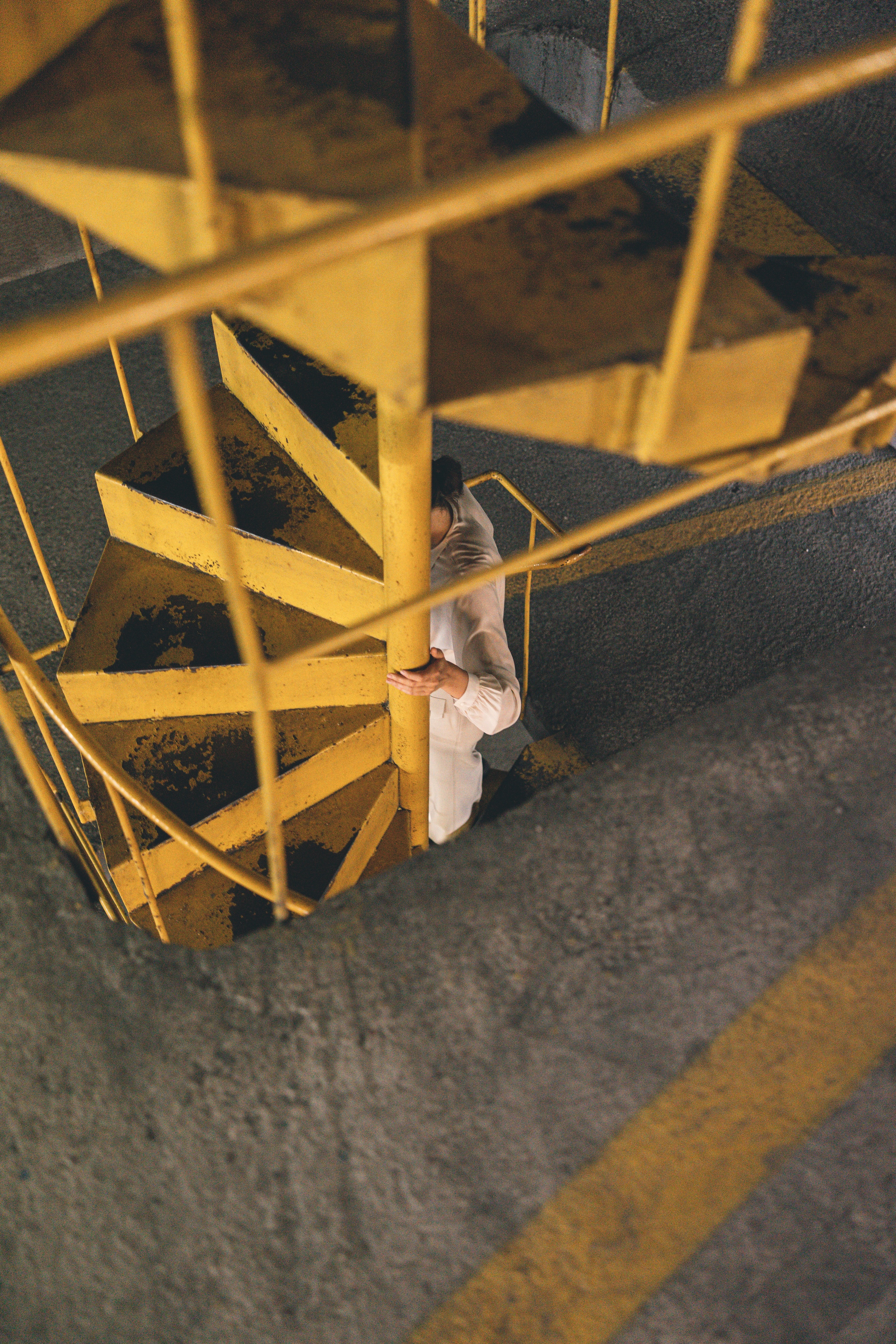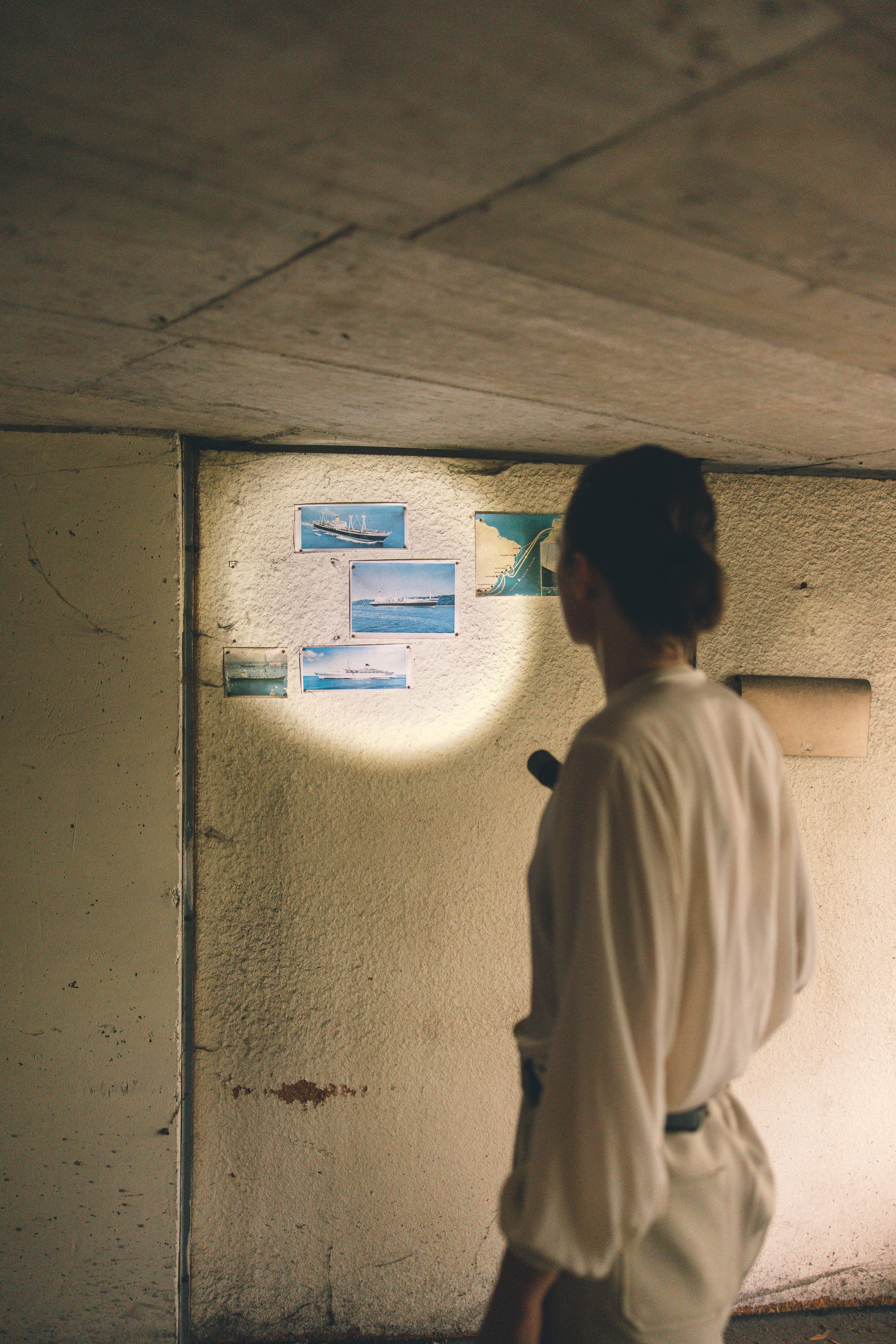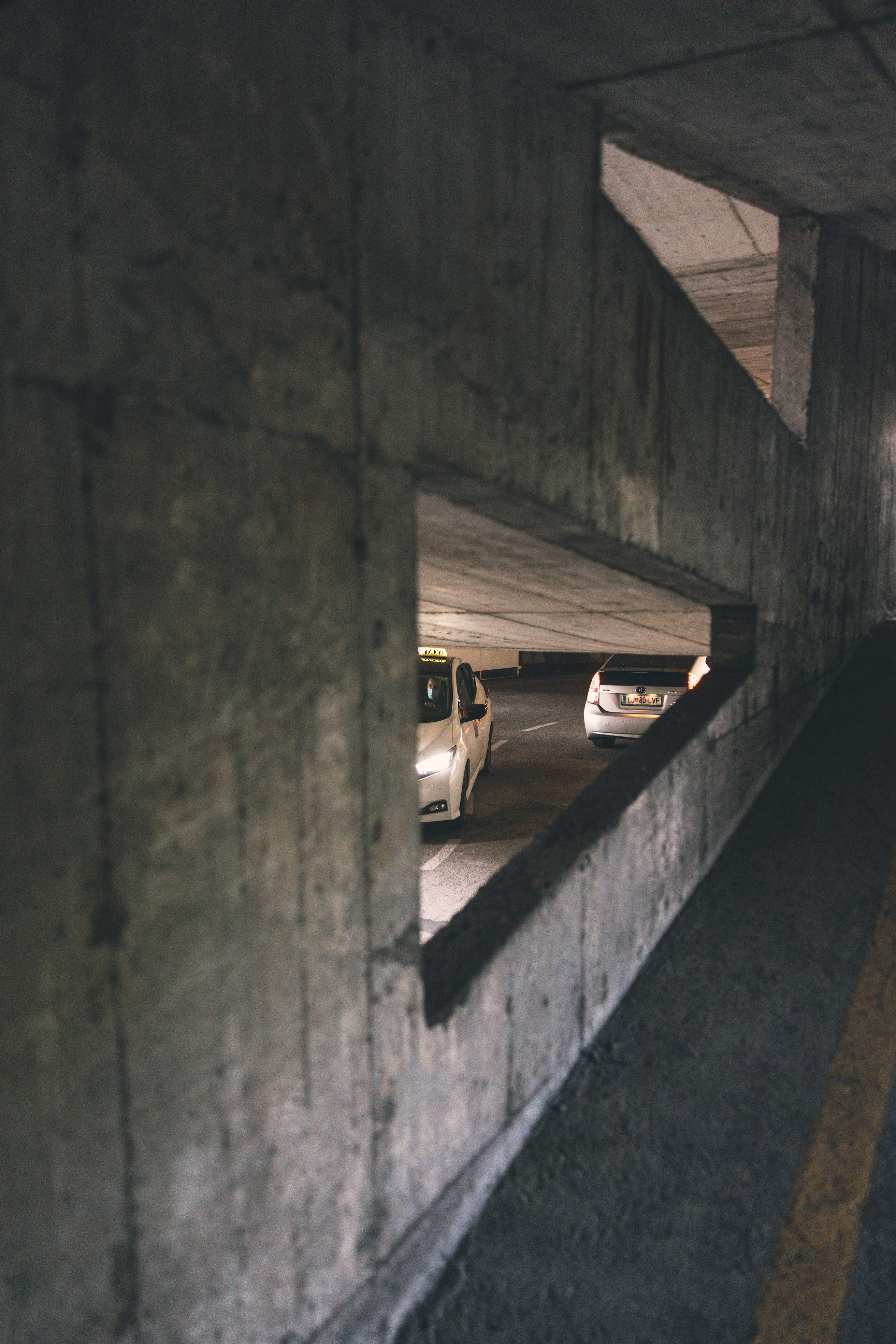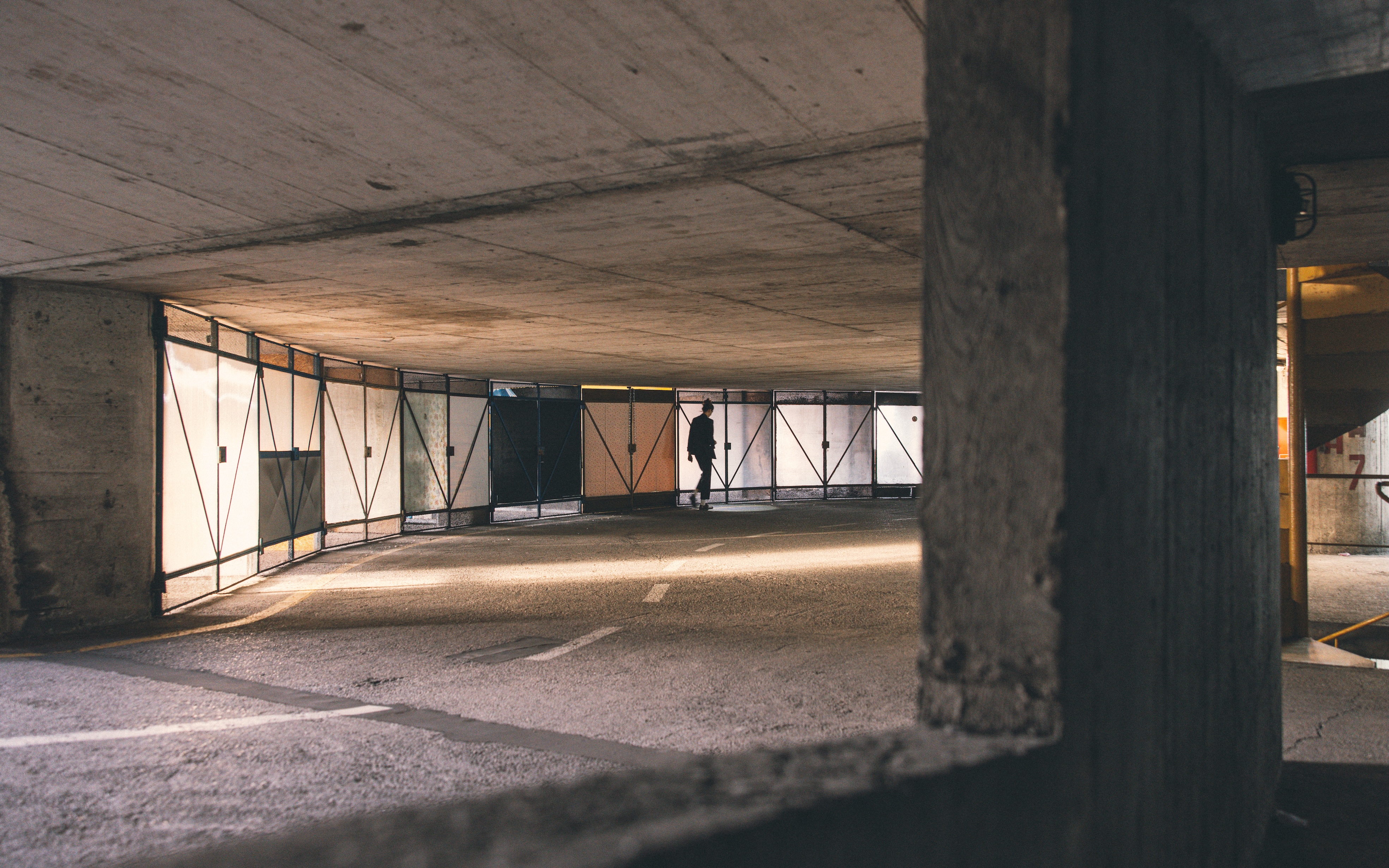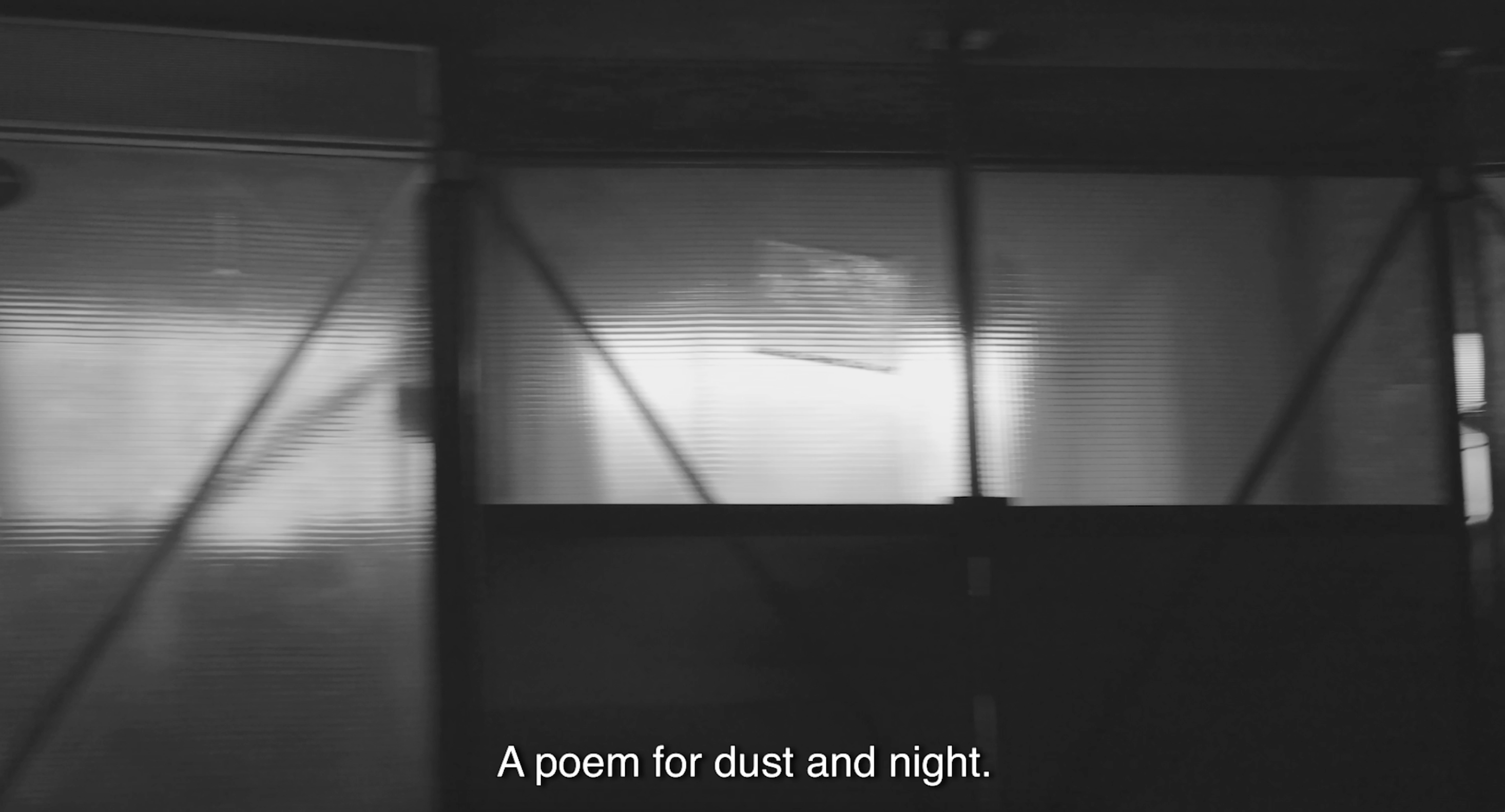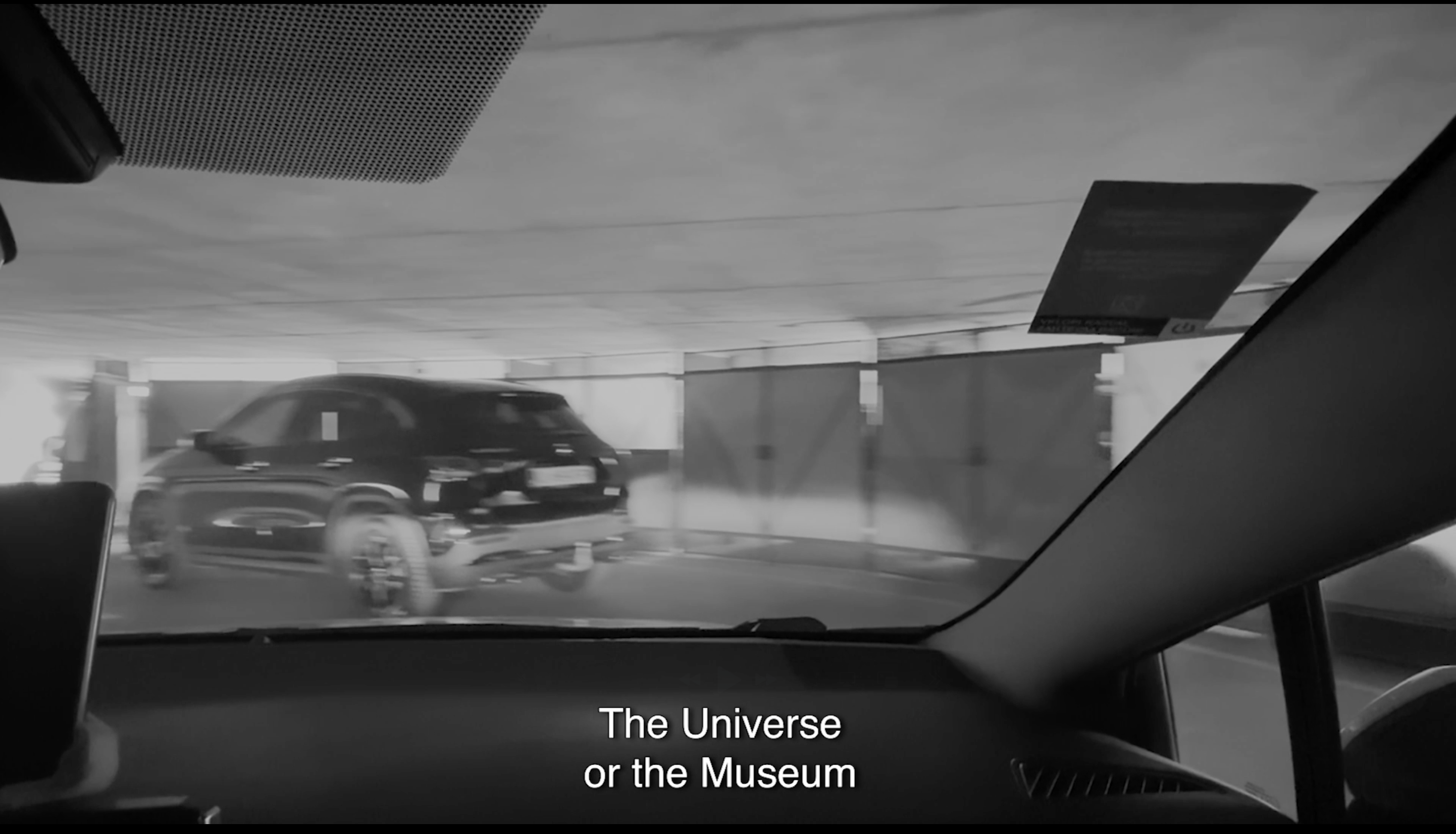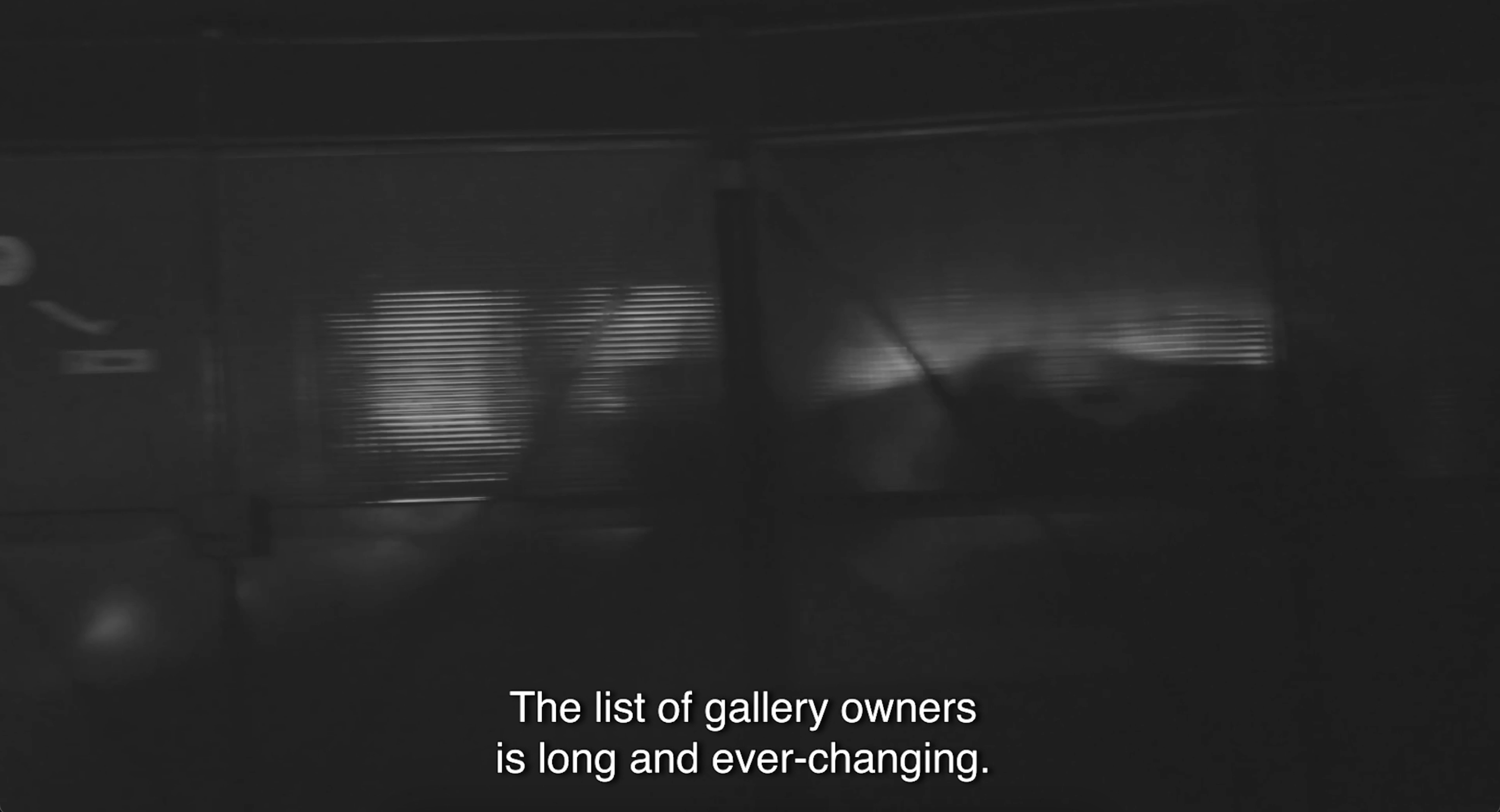Savin Sever’s parking garage, one of his masterpieces, is characterised by a distinct duality: it is a revered example of modernist architecture of the 1960s and at the same time a neglected and “useless” building. With a sonic drive through the garage, the Nonument Group drew attention to the specific structure of the building, which is not only architecturally fascinating, but, even in its supposedly problematic present existence, full of vitality and individual improvisations. Through an open reading, the structure already offers the changing city around it a platform for renewed, technologically up-to-date, socially engaged and city-forming content.
Savin Sever’s parking garage, one of his masterpieces, is characterised by a distinct duality: it is a revered example of modernist architecture of the 1960s and at the same time a neglected and “useless” building. With a sonic drive through the garage, the Nonument Group drew attention to the specific structure of the building, which is not only architecturally fascinating, but, even in its supposedly problematic present existence, full of vitality and individual improvisations. Through an open reading, the structure already offers the changing city around it a platform for renewed, technologically up-to-date, socially engaged and city-forming content.
Designed in 1969 by Savin Sever, one of the central Slovenian modernist architects, this parking garage is an example of a building as machine – not a machine for living, however, but a machine for parking. With its two cylinders connected by an ascending ramp it represents an extremely rational parking scheme for a society in which cars were rapidly becoming the primary means of transportation. The siting of the building in the city, the engineering details, ventilation, lighting, and the disposition of functions combine with the architectural design into a functional whole that is also aesthetically convincing. On the other hand, the extreme rationality of the design meant that the parking garage became problematic relatively quickly for the increasingly large vehicles using it. After it was privatized in 1991, it was transformed from a single-owner building into a condominium with approximately 500 co-owners – individuals and legal entities. Now visited by tourists and enthusiasts of modernist architecture, the building illustrates the dilemmas of extreme rationalism in design and materiality, as well as the temporal dimension of architecture, which is always focused on the long-term. Today, in the age of electric cars and a changed understanding of motor trac, it is seen in a new light again, despite the fact that it has not undergone renovation or adaption, but instead has simply waited, patiently, some decades to become usable again.
COLOPHONE
Concept and realisation: Nonument Group (Neja Tomšič, Martin Bricelj Baraga, Miloš Kosec, Nika Grabar) Curator: Alenka Gregorič Direction and choreography: Martin Bricelj Baraga, Neja Tomšič Text: Neja Tomšič, after “The Library of Babel” by Jorge Luis Borges Sound design and recording: Gašper Torkar Voices: Ana Čavić (eng), Primož Pirnat (slo) Sound recording: Sašo Kalan, Gašper Torkar Nonument researchers: Danica Sretenović, Miloš Kosec, Neja Tomšič Interviews: Barbara Tomšič, Danica Sretenović, Miloš Kosec, Martin Bricelj Baraga Statements by: Mr. Novak, Sonja Ifko, Maruša Zorec, Luka Bernetič, Miloš Kosec and numerous anonymous passers-by and users of the garage house Performers on 23 June 2021: Neja Tomšič, Gala Alica Ostan Ožbolt, Gašper Torkar Light design on 23 June 2021: Martin Lovšin Graphic design for 23 June 2021: Damjan Ilić Videographer and video trailer editor: Teja Miholič Photographer: Peter Giodani Drivers: Taxi Laguna Produced by: Museums and Gallery of the City of Ljubljana, MoTA – Museum of Transitory Art Producer for MGML: Janja Buzečan Public relations: Alja Gogala (MGML) and Maša Špiler (MAO) The project was commissioned by the Museums and Gallery of the City of Ljubljana, Cukrarna, 2021, as part of On the way to Cukrarna Gallery, and was part of Nonument Groups's solo exhibition The Exhibition is Outdoors at MAO - Museum of Architecture and Design in Ljubljana.
TGH-48: Nothing can happen here, video, 17’23”
The video essay TGH-48: Nothing can happen here was produced in 2025 for the group exhibition Picture (a) city, curated by Igor Španjol. Editor: Neja Tomšič Videographers: Teja Miholič, Martin Bricelj Baraga Text: Neja Tomšič, after “The Library of Babel” by Jorge Luis Borges Sound design: Gašper Torkar Voice: Primož Pirnat Sound recording: Sašo Kalan Translator: Borut Praper Subtitles: Neja Tomšič Sound design: Gašper Torkar Voice: Primož Pirnat Sound recording: Sašo Kalan
Name
TGH-48 Car Park
Garažna hiša TGH-48 / Severjeve garaže, Garažna hiša na Poljanah
Location
Ljubljana, Slovenia
46.258.468, 14.317.822
Built in
1969
